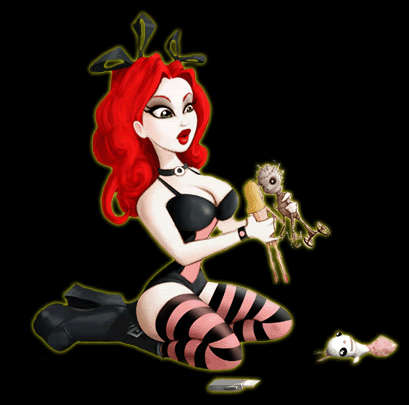 Title: Lady Chatterley’s Lover
Title: Lady Chatterley’s Lover
Author: D H Lawrence
ISBN # 1840224886
Publisher: Wordsworth Classics
First Published: 1928
268 pages
Format: Paperback
Rating: 7/10 Synopsis:
Constance Chatterley feels trapped in her sexless marriage to the invalid Sir Clifford. Unable to fulfill his wife emotionally or physically, Clifford encourages her to have a liaison with a man of their own class. But Connie is attracted instead to her husband's gamekeeper and embarks on a passionate affair that brings new life to her stifled existence. Can she find a true equality with Mellors, despite the vast gulf between their positions in society? One of the most controversial novels in English literature, Lady Chatterley's Lover is an erotically charged and psychologically powerful depiction of adult relationships.
Review:
First impressions are important and the instant impression that came to me is that D. H. Lawrence had a profound respect for women, seeing them as intelligent, rational, capable creatures with an innate sense and love of freedom.
One quote that really leapt out at me from page 2 and gave me a warm chuckle was in mentioning the youth of Constance and her sister: "They had been sent to Dresden at the age of fifteen, for music among other things. And they had had a good time there. They lived freely among the students, they argued with men over philosophical, sociological and artistic matters, they were just as good as the men themselves: only better, since they were women."
Despite this respect and deep emotional attachment, there were strange incongruities in the leading lady’s character: Although Constance seems to genuinely care for her husband, it surprised me that she shows absolutely no guilt over sleeping with other men -even going so far as to say to one lover, "I don't want Clifford to know... not even to suspect. It would hurt him so much. But I don't think it's wrong, do you?"
She seems to be able to separate emotion and affection from the act of having sex in a way that isn't normally portrayed in female characters of this era -certainly not in such a sympathetic light. I found this a very interesting approach, especially from a male author born in the tale-end of the 19th Century!
There was other moment where the four men (Constance’s husband and his three friends) are talking, it is mentioned that talking intellectually to a woman should be no different to sleeping with her. They “performed” better with Constance in the room (albeit silently). Were they then, by their own intellectual standards, making love to her in Clifford's stead? Wass he, in a way, being complicit, even at this early stage, in her being with other men?
Conversely, this seemed to be contradicted within the same chapter: Marriage is spoken of in terms of labels of ownership between spouses, with them each becoming an extension of the other. As Clifford is, due to his disability, sexless, is Constance then sexless by extension? Is this why, Tommy Dukes can say "sh*t" in front of Constance, despite claiming to be unable to do so in front of a woman? Is she considered, in this way, an “un-woman”?
The complexity of relationships; marital, familial and those of friendship, is explored with the some of the most beautiful language – even the use of “the C-word” seemed quite natural and didn’t offend in the least (in fact, it was used in such an affectionate manner it seemed almost a term of endearment, which was a new one on me!) – instead, it was gentle and completely non-derogatory in its context.
It's the first I've read by D H Lawrence, and I will certainly read more of his work. I've read other books set during a similar period, but in different areas and slightly different social sets (for example, The Great Gatsby focuses more on the American party set; A Taste of Blood Wine is 99% set in England and, again, features more of a social scene; P G Wodehouse's Jeeves and Wooster stories are also very social, with lots of visiting other people and places). This felt more stationary and confined, which, I think, added to the feeling that Constance was trapped in a place and marriage that did not make her happy.
I expected it to be a lot more steamy than it actually was - it turned out to be quite demure by comparison to some other "erotic" novels (such as Fanny Hill by John Cleland). Overall, I enjoyed every moment. I spent a lot longer reading this book than I usually do (mostly because I was so exhausted from jury duty all last week), but I savoured every last second of it. It was rather a refreshing read
 Title: Lady Chatterley’s Lover
Title: Lady Chatterley’s Lover

0 Comments:
Post a Comment
<< Home